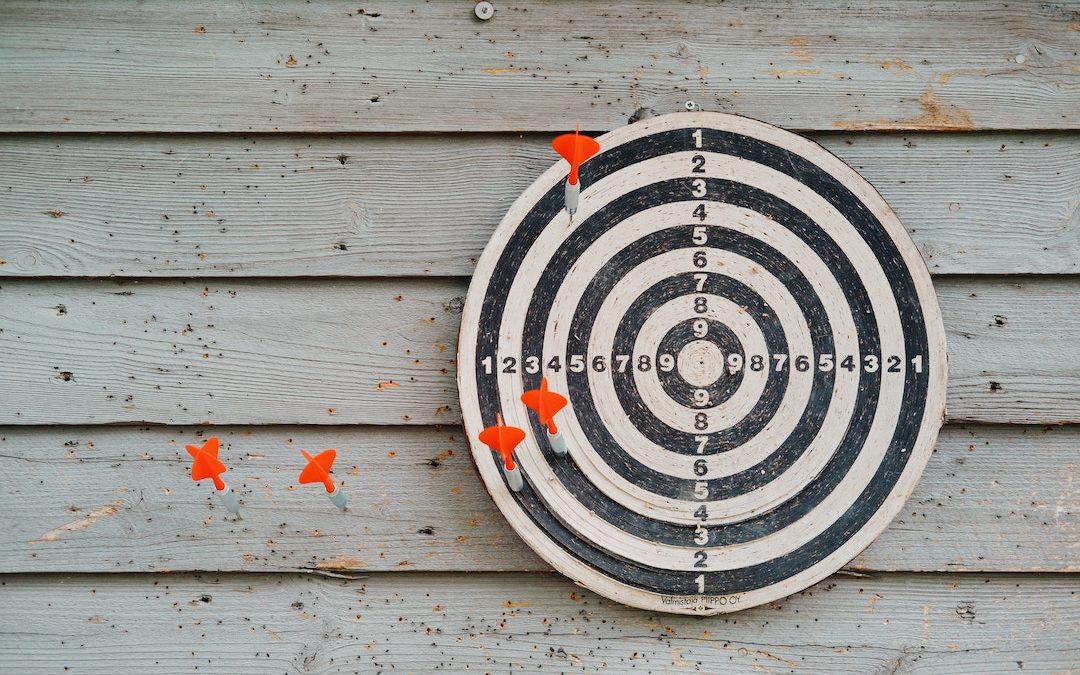The first year I ran track in middle school, I remember my coach telling us, “Running is about 90 percent mental.” I remember thinking, That’s ridiculous. I’m not running with my mind, I’m running with my body. And my body is too tired for this.
And as soon as I thought that, my body was too tired for it.
Which proved her point (but it would take me many more years to concede that).
The same is true for writing. I’m not sure about the 90 percent when it pertains to running, but it’s definitely true for writing, which is all done with the brain and needs positive, clear, excited brains to actually get started on any kind of project.
Just like when I head out the door for a run thinking, This is hard and awful and the run turns out to be hard and awful, if I start my writing session thinking, This is not gonna be good, it probably won’t be good. Our thoughts and attitudes make a huge difference in this career.
The mental game of writing is not an easy one to master. Thoughts break in during the middle of a writing session: Oh, this is so bad. No one’s gonna want to read it. I don’t want to read it, even. I should just trash the whole thing. This was a terrible idea anyway.
It didn’t take me nearly enough time to write that paragraph, because I’m intimately familiar with these intrusive thoughts. They plague me.
Peace Pilgrim, an American teacher, once said, “If you realized how powerful your thoughts are, you’d never think a negative thought.” But it’s not quite as simple as never thinking a negative thought again, is it? Because our minds sometimes have minds of their own.
So how can we better play the mental game of writing?
Here are some suggestions.
1. Do the work.
The more you practice, the better you get and the more you can talk back to those voices.
Most skills and talents don’t improve beyond any small measure we may have been born with if we’re not willing to practice. Practice develops expertise and competence. And as we develop expertise and competence, we also practice taking on the mental game of writing, facing all those voices that seek to stop us, pushing through their resistance, and building our perseverance. All of that practice is worthwhile.
But we also have to practice strategically. If we practice mistakes, we’ll get better at mistakes. When I played clarinet in high school and college, I had a rigorous practice routine. I’d spend between 90 minutes and two hours practicing to a metronome. I’d first warm up on every scale, including the chromatic, from memory. Then I’d start with the problem areas, slowing things down until I played the problem area perfectly, then speeding it up and moving on only when I felt comfortable with my competence playing the passage.
I take this same meticulous approach to my writing. I identify my weaknesses, study, play around with no-pressure compositions that challenge my weaknesses and work on strengthening them. It’s a grueling process, but it’s a good boost to the confidence when a part of writing that used to feel so hard doesn’t feel all that hard anymore.
2. Practice turning a negative phrase into a positive one.
Let’s say you sit down to write and your brain immediately says, You can’t do this. Talk back. Say, I can do this. And I will. If your brain says, What’s the point? No one will read it. No one cares. Say, Someone will read it. Someone will care. And the point is also that I love this and someone needs my story. If your brain tells you, This is crap, tell it, It may be crap now, but revision is where crap turns into brilliant.
If it’s too hard to do this mentally, take out a sheet of paper. If your brain throws you a negative thought while you’re writing on your project, use your sheet of paper to record the negative thought (even if it breaks your flow for a second or two). Underneath it, write the opposite of what the voice is saying (preferably in larger, bolder letters. Put that voice in its place.). Do this for every negative thought your brain supplies. And then put your paper on a bulletin board or wall where you can see it every time you write.
Negative thoughts get quieter when you take away their power.
3. Remember every writer faces resistance.
You’re not the first and you won’t be the last. No award, no bestseller status, no three-book deal will eliminate the mental game you’ll have to conquer (nearly) every time you sit down to write. We never feel 100 percent competent. We all deal with imposter syndrome, however many books we’ve written or how long we’ve been doing this. That’s either a source of comfort or a source of despair. I hope it’s the former.
Our thoughts can be powerful. But we don’t have to let the negative ones have the final say.
Have a wondrous month of talking back.


